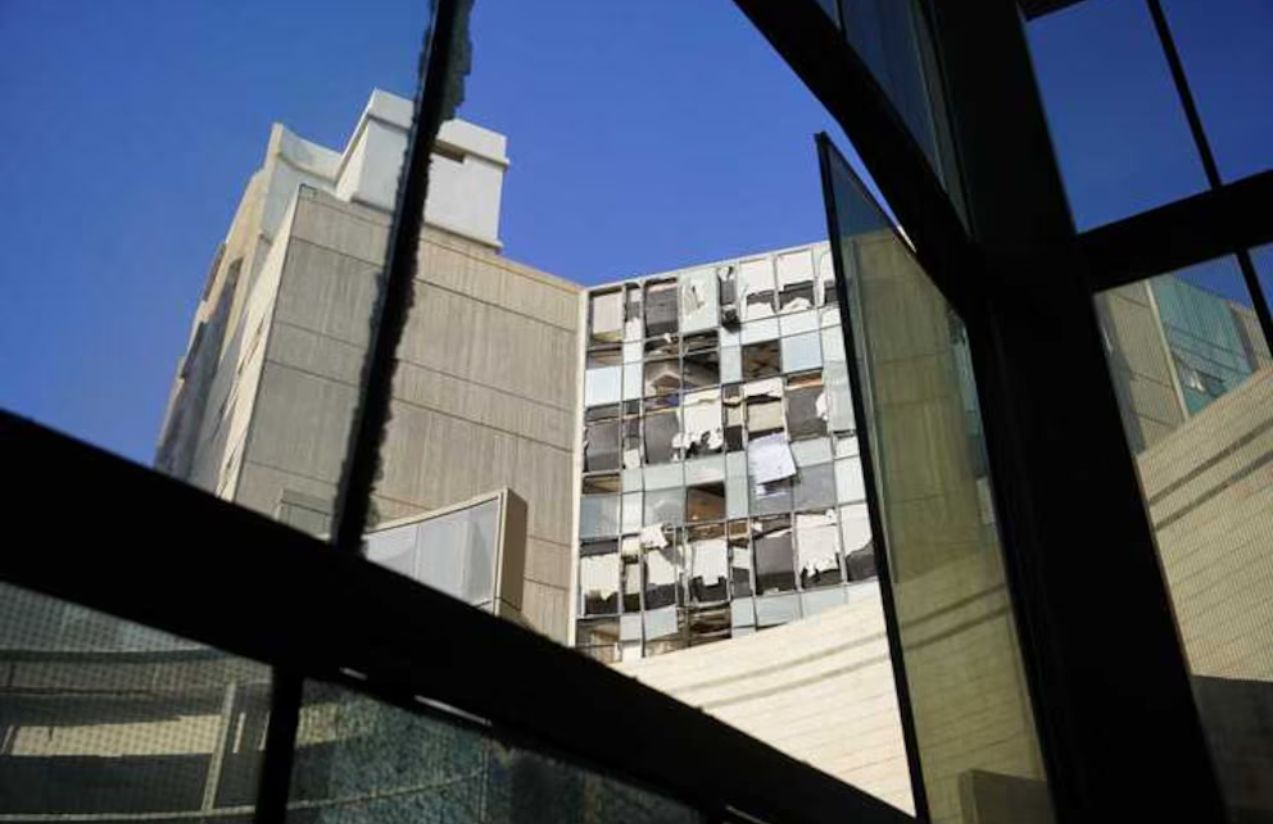A ballistic missile launched from Iran struck directly on Thursday at the Soroka Medical Center, the main hospital in southern Israel, causing severe structural damage and injuring several people, according to officials at the facility located in the city of Beersheba. The attack unfolded amid a new day of hostilities between the two countries, marking the seventh consecutive day of cross-border strikes.
“The hospital has sustained extensive damage in multiple areas,” said a spokesperson for Soroka Medical Center, which serves nearly one million people and has over 1,000 beds. The institution urged the public to avoid the facility while the extent of the damage is assessed.
At the same time, Israeli warplanes launched an airstrike on Iran’s heavy water reactor in Arak, in the country’s west. Iranian state media confirmed the strike but stated that there is “no risk of radiation” as the facility had been evacuated. A reporter from Iran’s state broadcaster, stationed in the nearby town of Khondab, said no civilian damage had been recorded in the surrounding areas.
Hours before the airstrike, the Israel Defense Forces (IDF) had publicly warned Iranian civilians of the impending attack. “Evacuate the designated area in the Arak-Khondab region immediately. Your presence puts your lives at risk,” read a message broadcast by the IDF in Farsi.
Thursday’s offensive also included strikes in Tehran and other parts of Iran. While the Israeli military did not disclose all target details, it later confirmed that Iran had responded with another barrage of missiles. Israeli authorities activated emergency sirens and instructed civilians to seek shelter in anticipation of further impacts.
The Arak reactor, located roughly 250 kilometers southwest of Tehran, has long been a source of international concern due to its potential to produce plutonium—a key ingredient for nuclear weapons. Under the 2015 nuclear deal with world powers, Iran agreed to redesign the reactor to reduce proliferation risks. In 2019, it reactivated its secondary circuit, a move that did not violate the agreement at the time. Following the U.S. withdrawal from the accord under President Donald Trump, the United Kingdom assisted in the reactor’s technical redesign.
The International Atomic Energy Agency (IAEA), the UN’s nuclear watchdog, has repeatedly urged Israel not to strike Iranian nuclear facilities. Inspectors last visited the Arak site on May 14, but the IAEA has since stated that due to Iranian-imposed restrictions, it has lost “continuity of knowledge” regarding the production and storage of heavy water in the country.
In recent days, Israel has ramped up its strikes on strategic Iranian targets, including the Natanz enrichment complex, centrifuge workshops near Tehran, and a nuclear facility in Isfahan. High-ranking Iranian military officials and nuclear scientists have also reportedly been killed.
In response, Iran has launched over 400 missiles and hundreds of drones toward Israeli territory, resulting in at least 24 deaths, hundreds of injuries, and significant structural damage to residential areas in central Israel.
As part of the 2015 nuclear accord, Iran also agreed to sell its surplus heavy water to Western nations. In one such transaction, the United States purchased 32 tons for more than $8 million—a deal that drew sharp criticism from opponents of the agreement.
The situation remains fluid, with no clear signs of de-escalation as the exchange of attacks continues.

